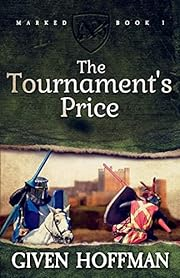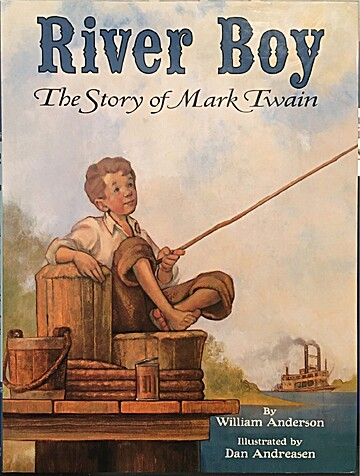Personal Reading
by Karina Yan Glaser
It's probably a good thing I didn't read this until after our big road trip: eight people in a big white van, stuffed full of luggage (how are we going to cram in even one more thing!). But they were doing it on the spur of the moment, without much advanced planning, and with at least 4 animals, and in the heat of the summer. This is the sixth Vanderbeeker book. It struck me as a bit shallow, and the kids never seem to learn to talk to their parents first about a problem -- they try to solve it on their own until everything blows up. Another turn-off, at one point, a couple of the kids pray "to the universe" instead of to God.Leadership NOT by the Book
by David Green with Bill High
The CEO of Hobby Lobby shares 12 principles by which he runs his business, which are based on Scriptural principles and not on standard practices by American businesses. These include God-focused practices such as "give the true owner the vote," "listen to and obey the Holy Spirit above all," "give away your profit," and "maximize risk for the right reasons." And people-centered practices such as "build for 150 years not just the next generation," "drive family practices, not profit practices," "put employees first, not money," and "defer to your people, don't just listen to them." And common-sense practices such as "remember your one thing, not the shiny things," "get into the weeds, not the altitude," "choose simplicity, not perfection," and "go at it with all your might." One of the best quotes was "Great leaders become great by diligently pursuing whatever work gets set before them." It was interesting to read about the principles Mr. Green uses to run his stores, especially since I've been a frequent customer of Hobby Lobby. One section kind of sounded like he might be influenced by the "listen for God to speak a special word of direction to you" camp. But most of it was soundly based on Scriptural principles.
Godersham Park
by Gill Hornby
This is the fictional story of the real-life Anne Sharp, who was a governess to Jane Austen's niece, Fanny. Based on the real Fanny's diary and letters, this novel creates a backstory for how and why Anne became a governess (usually the only work available to single, non-peasant women of the time). A part of me reacted to the feminist, anti-man themes in the book; but a part of me understands that women of the era were truly at the mercy of the men in their lives -- they either had to marry (possibly to someone they didn't really love and who didn't really love them) or be dependent on male relatives to provide for them. They were expected to act with the utmost purity and the least little thing could cast suspicion on them and ruin their reputation. Meanwhile, the men seemed to be able to live promiscuous lives with impunity. It was an interesting glimpse into this side of the Austen family and the difficult position the governess was put in -- not a part of the servant class, but not a part of the family either. A lonely, insecure position. There were some suggestive comments that I would classify as "for mature audiences." And I kept wondering if the author was trying to suggest or imply that Anne might have "same sex attraction," and perhaps even Jane Austen as well. I dislike the suggestion/implication that a woman who does not marry (by choice or by chance) probably does so because she is in love with a woman rather than a man.
The Jane Austen Society
by Natalie Jenner
It was sort of interesting, though disjointed. Until the 6th chapter, which turned vulgar and obscene. Quit right then and there. Glad I didn't spend any money on it, as it was a library book.
A Father's Promise
by Donna Lynn Hess
Rudi and his father, Dr. Kaplan, live in Warsaw, Poland at the beginning of WWII. His father is a Jew, his mother (who died when Rudi was young) was a Swede. Both Rudi and his parents are believers in Jesus and try to share their faith in Messiah with their Jewish friends. Rudi has his mother's looks, so he can pass as a non-Jew. When his father realizes that he is about to be arrested by the Germans, he sends Rudi off to a friend who is part of the resistance fighters out in the country. Rudi learns to live and support himself out in the forest, taking care of a little orphan girl as well. He grows in his faith and is reunited with his father and best friends after the war.
The Pickwick Papers
by Charles Dickens
This was Dickens' first novel. Mr. Pickwick and his three friends travel together for two years, getting into all sorts of scrapes and misunderstandings, meeting all kinds of people, and hearing all kinds of fantastical stories. Some people complain about the lack of a cohesive plot, but I found it entertaining. As I always say, Dickens makes me laugh out loud sometimes with his dry, ironic wit and the way he describes ludicrous situations and the follies of human nature. Pickwick's servant, Sam Weller, is my favorite character. I listened to the audiobook narrated by Simon Prebble. He is one of my favorite narrators for Dickens books. He does such a great job with the accents and dialect and with making each character have a distinctive voice. I listened to it mostly while filling hay bags at the barn or riding my bike. Took me three months to finish the 30 hour recording, but it made the chore time enjoyable.The Soul of a Horse: Life Lessons from the Herd
by Joe Camp
Joe Camp is the guy who made all the Benji movies (if you are old enough to remember those). He is a disciple of Monty Roberts ("the man who listens to horses") and other natural horsemanship advocates. Though most of his life was about training and filming dogs, he jumped into horse ownership on a whim and after two years wrote this book. He alternates telling an imaginative account of his horse's ancestors with recounting all the things he's learned about horses since he bought his first horse just two years before writing this book. He believes in having a relationship with your horse, not putting shoes on blankets on them or putting them in stalls. He bases his claims on his belief that horses survived and thrived for 55 million years before humans came along and on his belief that wild horses live twice as long as the average domestic horse. I know for certain the first assumption is false, and he gives no concrete numbers or data or sources for his second claim. From what I've read and seen, wild horses live about 15 years, while domestic horses routinely live to their upper 20s or into their 30s. I found myself reading the book just to get it over with so I could go on to something else.
How to Build a Story
by Frances O'Roark Dowell
A book aimed at kids, explaining how to write a good story -- from getting an idea, creating a dramatic opening, explaining the background, figuring out what the protagonist's main problem is, throwing obstacles in his or her way, and then resolving the problem. It's written in an informal, conversational style meant to engage a kid's attention. Some of the language borders on "crude" (to me), and some of the allusions to books and stories don't resonate with me (or my kids) because we haven't (and don't intend to) read them. But overall, her advice was good. I strewed it to see if any of my younger kids might be curious.
A Study in Scarlet
by Arthur Conan Doyle
The first novel about Sherlock Holmes and his sidekick Dr. Watson. The book is divided into two parts. At first the second part seems to be totally unrelated to the murder mystery detailed in the first part. But it gives the background and explains the origins of the murderer before the conclusion answers all the questions the Scotland Yard detectives (and the reader) have about the case. This is the first Sherlock Holmes book that I've actually read. I liked it more than I thought I would.
The Tournament's Price
by Given Hoffman
A medieval fiction/adventure story set in a fictional kingdom, using a historical medieval background. Prince Gage is the second born son of the King of Edelmar. He gains fame and fortune on the tournament field as an undefeated jouster. But he is daunted by the responsibilities of leadership and haunted by the deaths of people were relied on him. He turns his back on his heritage and lives the life of a commoner. This leads him to learn some things about the people in his father's kingdom that no nobleman could ever know. Each chapter ends on a cliff-hanger. And the book ends on the worst cliff-hanger of all. Better make sure you have the second book of the series readily available. :-) I listened to the audiobook. The narrator was too fast and not very interesting to listen to, though the story was interesting enough to get me through it. I think I'd rather read it on my own. The author was homeschooled and decided to write books for teenage boys because her younger brother was struggling to find good books to read (most are written for women/girls). You can read more about the author and her books at givenhoffman.com
The Juvenilia of Jane Austen and Charlotte Bronte
A collection of stories written by these two famous authors when they were young. I got it mainly for the Jane Austen stories. It was a little bit interesting to see how she reused some of the character names in her adult novels and also her use of ironic wit to poke fun at human foibles. But it wasn't interesting enough for me to keep reading.
Read-aloud (geography)
Books set in Oklahoma:
Mickey Mantle: The Commerce Comet
by Jonah Winter
A picture book biography of Mickey Mantle, who was born in Commerce, Oklahoma. It mentions a knee injury near the beginning of his career that left him in pain for the rest of his life. Even with all that, amazing what he accomplished. It might also explain why he drank a lot -- perhaps to dull the pain. Interestingly, an article in World magazine at the same time mentioned Bobby Richardson (founder of baseball's chapel system) and his influence on Mickey Mantle, possibly leading him to accept Christ before his death.
Angels in the Dust
by Margot Theis Raven
A picture book of a family living through the dust bowl in Oklahoma in the 1930s. The illustrations are great. The idea that when mama dies, she becomes and angel and watches over her children from heaven is unbiblical, so we discussed that while reading it.
Jim Thorpe's Bright Path
by Joseph Bruchac
A picture book biography of Jim Thorpe, a native American who became a famous athlete in many sports in the early 1900s.
Books set in Missouri:
Fairy Floss: The Sweet Story of Cotton Candy
by Ann Ingalls
A picture book describing the invention of cotton candy and its debut at the St. Louis World's Fair.
River Boy: The Story of Mark Twain
by William Anderson
Just what the title indicates... a picture book biography of Mark Twain and his growing up on the Mississippi River in Missouri.
Calamity Jane
by Stephen Krensky
Explains some of the tall tales and legends that grew up around the real-life Mary Jane Canary.

















No comments:
Post a Comment